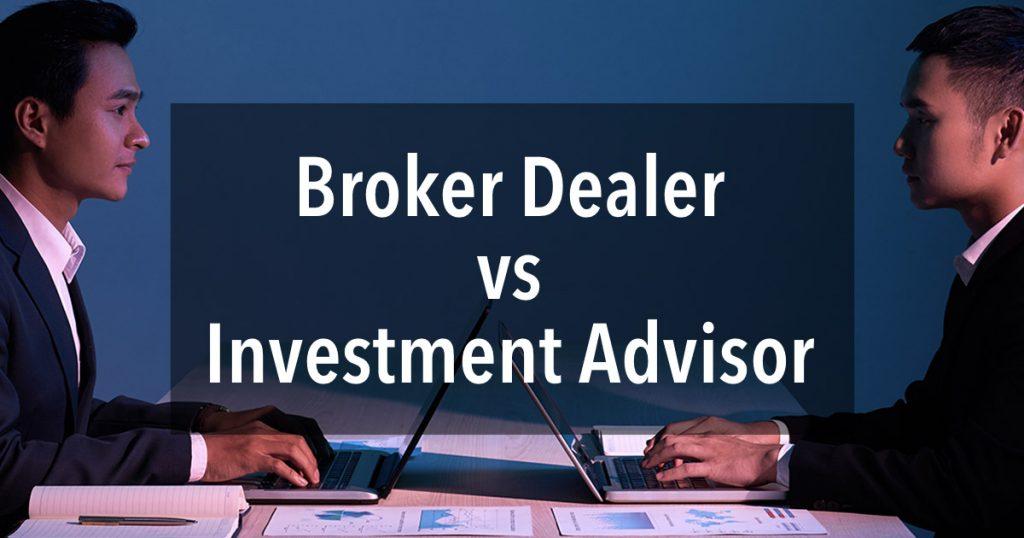People who want skilled help managing their investments often find themselves at a crossroads in the complicated world of finance. Two key players in this arena are broker-dealers and investment advisors. Knowing the differences between these entities is important to make smart financial choices. This comprehensive exploration will delve deeper into the nuances of broker dealers vs. investment advisors, shedding light on their roles, responsibilities, and the critical differences that set them apart.
Broker Dealer vs Investment Advisor: An Extensive Overview
When delving into financial services, the terms “broker-dealer” and “investment advisor” are frequently encountered. Both play pivotal roles in assisting clients with financial goals, but their approaches and responsibilities differ significantly. To understand the battle of investment advisor vs broker dealer, let us first know what each role does.
Broker Dealer: Facilitating Transactions
A broker-dealer is a go-between for buyers and sellers in the financial markets. Buying and selling stocks on behalf of clients is one of their main jobs. People in this field are usually licensed to buy and sell financial instruments like stocks, bonds, and mutual funds. They usually work for brokerage companies.
Here are the key points of a broker dealer:
- Transaction Facilitation: Broker dealers excel in facilitating transactions swiftly and efficiently.
- Commission-Based Compensation: Many broker-dealers earn their income through commissions on their trades.
- Market Expertise: Brokers are very knowledgeable about investment goods and market trends.
Investment Advisor: Providing Personalized Guidance
An investment advisor focuses on giving their clients personalized financial advice and investment strategies that fit their wants and goals. Investment advisors, on the other hand, usually work on a fee-based model, taking a cut of the assets they handle for their clients.
Here are the key points of an investment advisor:
- Holistic Financial Planning: Investment advisors prioritize comprehensive financial planning, considering factors beyond investment choices.
- Fiduciary Duty: An ethical code tells registered financial advisors always to do what is best for their clients.
- Long-Term Relationship: Advisors typically build long-term client relationships, adapting strategies as financial goals evolve.
Broker vs Investment Advisor: Deciphering the Variances
Understanding the differences between a broker and an investment advisor is crucial for individuals seeking financial guidance. Here, we delve into the key differentiators that can influence the choice between the two:
Compensation Structure
Broker Dealer: Primarily earns through commissions on trades.
Investment Advisor: Usually charges fees based on how much they handle.
Regulatory Oversight
Broker Dealer: The Financial Industry Regulatory Authority (FINRA) oversees it.
Investment Advisor: Controlled by the SEC or state securities officials.
Client Relationship
Broker Dealer: Transaction-oriented, with less emphasis on ongoing relationships.
Investment Advisor: Focused on building long-term relationships and providing continuous financial guidance.
Registered Investment Advisor vs Broker Dealer: Navigating Regulatory Landscapes
The rules and regulations are important when deciding between registered investment advisors and broker dealers. Understanding the oversight each entity is subject to can provide insights into their practices and obligations.
Broker Dealer Regulation
- Follow FINRA rules that stress fair and honest behavior in the securities business.
- You need to sign up with FINRA and follow its rules and guidelines.
Registered Investment Advisor Regulation
- Depending on how much money they handle, they may be regulated by the SEC or state securities regulators.
- Bound to a fiduciary standard, which means putting clients’ needs first.
Difference Between Broker Dealer and Investment Advisor: A Comprehensive Summary
In summary, the distinctions between broker dealers vs investment advisors are rooted in their fundamental roles, compensation structures, and regulatory obligations. While broker dealers excel in executing transactions swiftly and efficiently, investment advisors focus on providing holistic financial advice tailored to individual needs. The choice between the two depends on the client’s financial goals, preferences, and the level of ongoing guidance they seek.
To gain a more nuanced understanding, let’s explore additional facets of the broker dealer vs investment advisor debate:
Risk Tolerance and Investment Style
Broker Dealer: Usually serves a wide range of clients with different levels of comfort with risk.
Investment Advisor: Customizes investment strategies by thoroughly understanding the client’s risk profile and preferences.
Educational Background and Qualifications
Broker Dealer: Typically requires licenses such as Series 7 for general securities and Series 63 for state securities regulations.
Investment Advisor: May hold advanced degrees and certifications like the Certified Financial Planner (CFP), and operate under a fiduciary duty.
Product Offerings
Broker Dealer: Provides a range of investment options, such as stocks, bonds, and mutual funds.
Investment Advisor: Emphasizes a diversified portfolio, often incorporating a mix of asset classes to align with long-term financial goals.
Client Decision-Making Involvement
Broker Dealer: Clients often rely on the broker’s recommendations for individual transactions.
Investment Advisor: Collaborates with clients in decision-making, considering their input in crafting a comprehensive financial plan.
Broker vs Investment Advisor – Informed Decision-Making for a Secure Financial Future
To get around the financial world, you must know the difference between broker dealers and investment advisors. By grasping the nuances in their roles, compensation models, and regulatory frameworks, individuals can make informed choices aligned with their financial objectives. Whether opting for transactional efficiency or personalized financial guidance, the key lies in choosing the professional whose approach aligns seamlessly with one’s unique financial journey. As the financial world evolves, staying informed becomes paramount for ensuring a secure and prosperous financial future.
